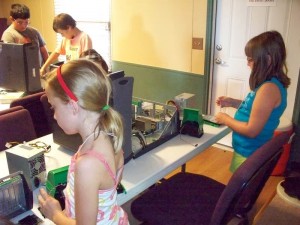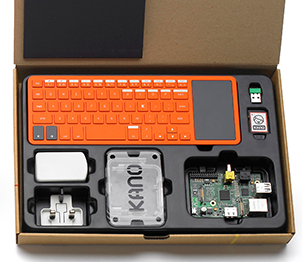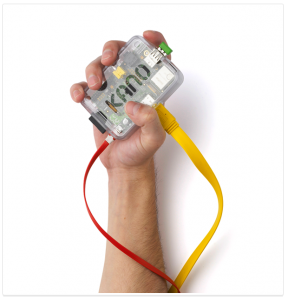I call them Mars kids.
They are the children who will grow up to see the first human step foot on Mars. While the majority of them will watch the epic event of a human presence on Mars, some of them will have another role. They will be the ones that made it possible.
Working as the front man for Reglue, I have the opportunity to watch school kids learn, as opposed to merely seeing the grades they accomplish by learning. I am able to watch the learning process itself. Some of it anyway.
In the summer of 2009, our organization began a summer program called Camp HeliOS. We held a three day camp in which kids took a computer apart and then put it back together again. We made sure that every kid was equally invested in the project.
 They would take the computer home with them after the camp. We also gave these kids a chance to donate that computer to someone they knew who might need one. It was one of the greatest learning opportunities we’ve provided.
They would take the computer home with them after the camp. We also gave these kids a chance to donate that computer to someone they knew who might need one. It was one of the greatest learning opportunities we’ve provided.
I mean learning opportunities for me. The kids took it in stride as just another way to spend their summer.
And as an aside, girls at this age clearly outperformed the boys in this project. Their focus and attention to detail was far superior. At this level, the glass ceiling was shattered.
Kano Goes OLPC One Better
One Laptop per Child (OLPC) is a great program to put computer technology into the hands of people all over the world, not just in countries on the forefront of technology. From the arid deserts of Africa to the ghettos of Rio de Janeiro, OLPC is an effort to insure that every child in any circumstance can access technology. It may pique their interest, but without a structured learning environment it can lead to dead ends.
 Kano began raising funds in December of 2013. Their goal was to raise $100,000 to expand their ability to manufacture and sell a kit that not only taught kids how to use a computer, but how to build one and how to write code to use on that computer as well. It’s designed to fire the interest and imagination of future Anita Borgs and Linus Torvalds.
Kano began raising funds in December of 2013. Their goal was to raise $100,000 to expand their ability to manufacture and sell a kit that not only taught kids how to use a computer, but how to build one and how to write code to use on that computer as well. It’s designed to fire the interest and imagination of future Anita Borgs and Linus Torvalds.
The kit is based on Eben Upton’s Rasberry PI. Eben is the Founder, CEO and, inventor of the Raspberry PI. He has good things to say about the Kano effort:
“There’s enormous value to platforms like Kano which add hardware, software, peripherals and documentation to the Pi to make it more appealing to users who are under-served by the standard offering. I’ve had a play with early versions of the Kano software environment, and I think Alex and the team are doing great work making the Pi more accessible to younger and less technical audiences.”
Alex Klein and his co-founders never dreamed that they would succeed many times over with their Kickstarter campaign. Oh, they met their goal of $100,000.00 well enough. It only took a matter of hours. They have raised just over $1.5 million for their efforts.
The possibilities that come from this project are huge.
While I am able to distribute 100–300 Linux powered computers a year for Reglue, Kano takes that one step further and fires the imagination of the people who will build and learn from them. And yeah, it’s not every kid that will go on to become a computer scientist or software engineer, but we see it as creating just the right spark to light up that pathway. Kano makes it plain that this is exactly what they intend.
At school and at work
Make Kano with your cousin, your dad, your friends, or your dog. (Caution: do not put stickers on dog.) The kit is also great for schools, clubs, companies and places where people ponder. It introduces computing and code in simple, tactile ways.

- Make hardware
- Hack games
- Share projects
- Onboard Scratch, Codecademy, Minecraft, and more
Kano provides pedagogy, exercises, and tools for each key stage rubric in the new UK computing curriculum. It’s great for small groups (a semester project) or a take-home project.
For the sticker price of $99.00, this is the perfect gift for a child’s birthday or other occasion. We really never know what small choices we make will lead us or others onto drastically different paths.
Giving a child a Kano kit could very well be one of those choices. At Reglue, we firmly plan to see what doors we can open with Kano.
Ken Starks is the founder of the Helios Project and Reglue, which for 20 years provided refurbished older computers running Linux to disadvantaged school kids, as well as providing digital help for senior citizens, in the Austin, Texas area. He was a columnist for FOSS Force from 2013-2016, and remains part of our family. Follow him on Twitter: @Reglue





These KANO computers are just too cool! I think that part of the beauty of the PI computers are that they offer a basic base that so many people are able to build off of. A Kit like this is just seems to be to be a perfect match for the PI. – I could hope that the Beaglebone gets some attention also, as it’s also a good little PC, it just hasn’t gotten the same media attention as the PI.